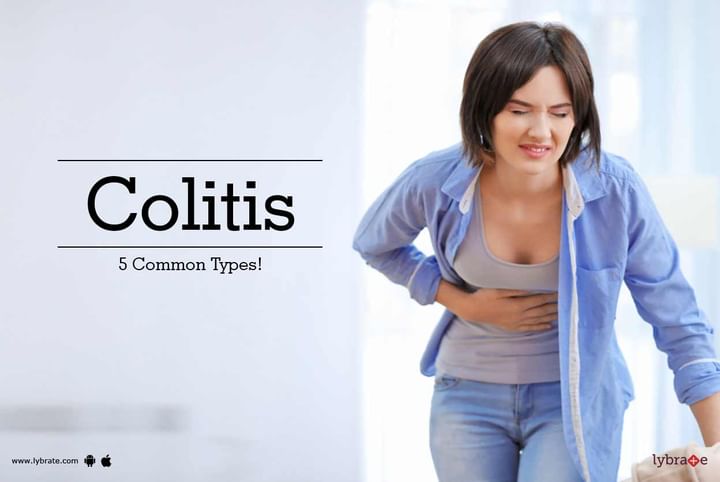Colitis - 5 Common Types!
Colitis is characterized by an inflammation of the large intestine (colon). It is generally caused due to reduced blood supply, autoimmune reactions (wherein the immune system erroneously starts attacking the body’s healthy tissues) and infections in the large intestine.
Symptoms of colitis
1. Presence of blood traces in the stool.
2. Acute colitis can itself be a symptom of hemorrhoids (inflamed and swollen veins in the anus or the rectum)
3. Tenesmus (constant urge to empty the bowels) is also quite common
4. Occurrence of abdominal pain in regular intervals, thus resulting in diarrhea
5. Constant abdominal pain
6. Fever and sudden chills throughout the day
Types of colitis
1. Inflammatory bowel disease: This condition is characterized by inflammation of the intestines or all the parts of one’s digestive tract
2. Microscopic colitis: This involves inflammation of the large intestine (colon), resulting in a cramping sensation that can be painful
3. Chemical colitis: This condition is caused due to prolonged exposure to certain harsh chemicals which results in intestinal swelling and inflammation
4. Ischemic colitis: The most common form of colitis, this occurs mainly due to an insufficient blood supply to the large intestine
5. Infectious colitis: Caused due to certain bacterial or parasitic infections
Treatment for colitis
1. Medications such as acetaminophen and ibuprofen can be recommended to ease the pain
2. The drug ‘Loperamide’ can control the diarrhea. However, this should not be consumed if there is presence of blood in the stool
3. Colitis reduces your appetite. Thus, it is important to maintain a healthy diet in this regard. Avoid consuming dairy products or high fiber foods because they further inflame the large intestine.
4. Colectomy (surgically removing a part of the whole of the colon) is recommended in the most severe of cases. If you wish to discuss about any specific problem, you can consult a gastroenterologist.



+1.svg)
